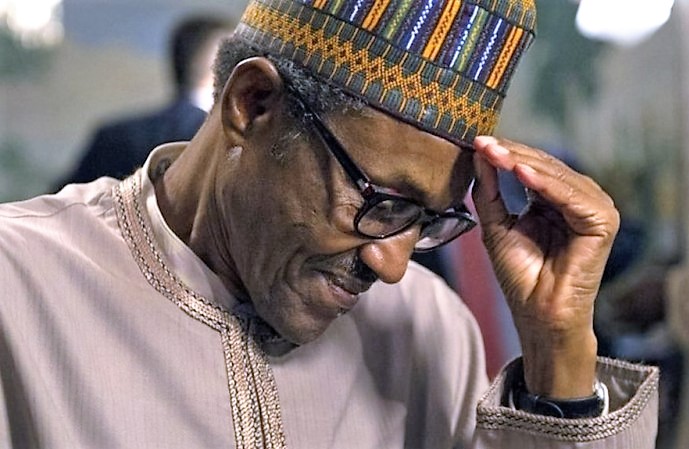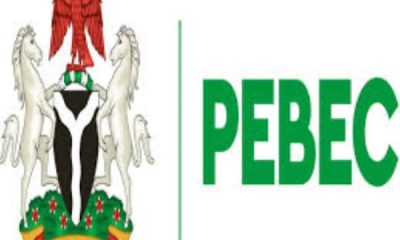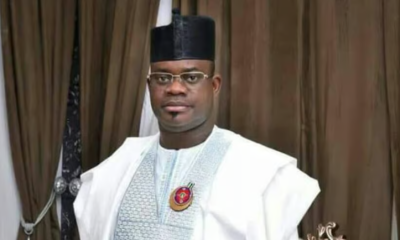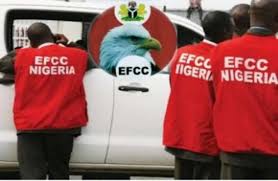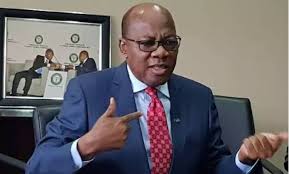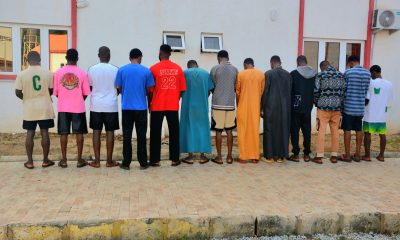Accusations by Jonathan’s wife, Patience Jonathan that President Buhari administration is overseeing an ‘unjustified witch hunt’ against her and her husband using the Economic and Financial Crimes Commission (EFCC) may have worsen the frosty relationship between Buhari and Jonathan.
The EFCC has been probing corruption allegations against Patience Jonathan since the inception of the present administration. The former first lady had four accounts containing a total of $31.5 million frozen by the EFCC last year.
But Patience Jonathan said that the probe was “desecrating” the office of the Nigerian presidency and suggested that Buhari was targeting her because she was Jonathan’s wife.
Since the Buhari administration took over from Jonathan in 2015, it has consistently blamed the country’s financial straits on mismanagement under Jonathan, despite the former president having global economic conditions in his favor.
Nigeria’s economy has been hammered by low oil prices and only recently emerged from recession, but it still needs a gross domestic product increase of 3 percent per year to keep up with population growth.
According to President Buhari’s spokesman, Garba Shehu, the oil sector boomed under [Jonathan’s] tenure, with oil prices as high as $120 and peace in the Niger Delta. He said Nigeria earned unprecedented dollar revenues.
“There is nothing to show for the revenues earned; no major capital project was completed, neither power generation, road development, rail nor agriculture benefited from the windfall earnings.”
The Buhari administration said that Boko Haram grew under Jonathan due to “incompetence and miss-governance.” Jonathan has rejected the accusations and claimed that his government seized significant territory back from the militants.
ALSO SEE: Fuel scarcity looms as oil majors move to shutdown depots
Jonathan was quick to hit back, with a statement issued through his conduit Reno Omokri, saying that corruption and Boko Haram had worsened under Buhari and claimed that Buhari’s spokesman was living in a “fool’s paradise.”
The tensions have taken on added significance following agitations in the Southeast by the Indigenous People of Biafra (IPOB) for secession.
Jonathan is not an Igbo but a member of the Ijaw ethnicity, but he hails from the southern state of Bayelsa, and his words would undoubtedly resonate with the people from the region more than those of Buhari.
The region where Jonathan comes from, South-south, is the country’s cash cow, producing more than 90 per cent of Nigeria’s main, oil. There is also restiveness in the region, resulting in the destruction of oil installations.
He could also be a valuable ally for the Buhari administration in seeking to bring peace to the restive region as he has consistently called for unity of the country
However, the dispute between the two does not look like it will go away soon, as any perceived negative outcome from the EFCC investigation could add more fuel to the crisis between President Buhari and his predecessor, a man widely praised –including Buhari for leaving office rather than trying to cling to power.

 Health5 days ago
Health5 days ago
 Entertainment6 days ago
Entertainment6 days ago
 Crime5 days ago
Crime5 days ago
 Education7 days ago
Education7 days ago
 Health7 days ago
Health7 days ago
 Comments and Issues6 days ago
Comments and Issues6 days ago
 Football6 days ago
Football6 days ago
 Latest6 days ago
Latest6 days ago
